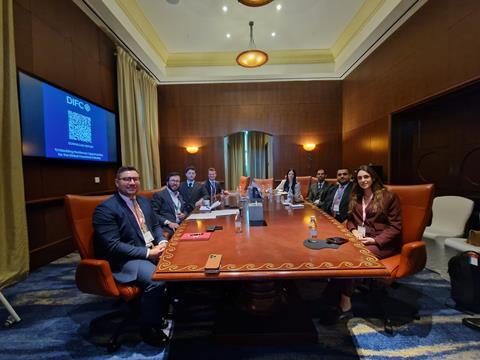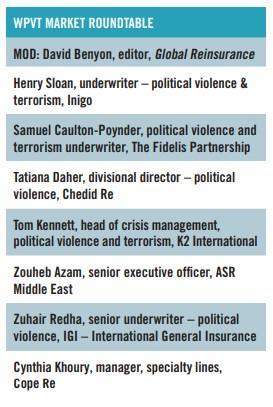Capacity is flowing into the political violence (PV) market in 2025, but practitioners speaking at a DWIC 2025 roundtable observed the influx is suppressing rates at odds with rising risk accumulations.
Participants said the market remains paradoxically soft despite heightened uncertainty across several regions, especially the Middle East and Africa. Though event-driven claims activity has been limited, there was broad concern that the underwriting cycle was drifting too far from the realities of the risk environment.

One attendee described conditions in the PV market as “rough” and “challenging”, highlighting that while uncertainty has increased, rate levels are declining faster than expected.
“We were expecting rates to go down,” they said. “But we did not expect it to happen this fast, especially not in a period of geopolitical uncertainty.”
Multiple speakers pointed to the influx of new capacity and broking entrants as key drivers of pricing pressure, particularly where risk counts had not expanded.
“We’re all working on the same risks,” noted one attendee, highlighting a lack of new business despite expanding distribution.
Although 2024 was widely expected to bring unrest due to a high number of global elections, few major claims materialised.
With losses largely absent, especially from systemic SRCC (strikes, riots and civil commotion), rates continued to drop despite the growing complexity of the risk landscape.
Some speakers warned that systemic SRCC remains the peril most likely to trigger significant future losses for the standalone PV market.
“If people looked at how much exposure they’ve got in certain countries for SRCC, it would scare them,” said one. “Arab Spring-style contagion across borders would be the biggest concern.”
Underwriters voiced frustration at growing client demands for broader coverage and “free” reinstatements, often under soft market conditions.
Several warned that policy extensions such as denial of access, utility outages, and delay in start-up had driven significant losses in previous SRCC events, notably in South Africa.
There was broad concern over the inclusion of sabotage within PV coverage, especially in a global context of hybrid warfare.
“Sabotage is one of the least favourite perils to cover,” said one underwriter. “There’s such a grey line between sabotage and accident. It’s not priced properly, and it could lead to billions in potential losses.”

Data and modelling tools for PV were deemed limited, with several participants noting that most market players rely on the same risk rating vendors.
Concerns were raised that these tools often update reactively, rather than predicting volatility. Some described efforts to build in-house tools or consult retained legal counsel for jurisdictional risks.
The importance of geographic knowledge and on-the-ground awareness was also emphasised.
“You can’t just underwrite Lebanon or Yemen from London without understanding the local context,” said one speaker. Others encouraged more site visits and local intelligence gathering to avoid blind spots in risk assessments.
As the session concluded, some participants offered cautiously optimistic final thoughts, stressing the need for discipline, transparency and long-term thinking.
Tatiana Daher, divisional director, political violence, Chedid Re, said: “It’s very important for everyone – from the client to the reinsurer – to understand exactly what’s being covered.
“That means knowing the risk, the exposure, the occupancy, and explaining it clearly. Maybe then we’ll see more stable pricing and expectations across the market.”
“It’s the shared responsibility of all participants in the market – the broker, the insurer, the reinsurers – to look to partners who are going to stay with you in the long run,” added Zuhair Abulqasim, senior underwriter, political violence, IGI.
“Not just those who are opportunistic when the market is going in one direction or the other. That’s what leads to the sustainability we all need.”










No comments yet